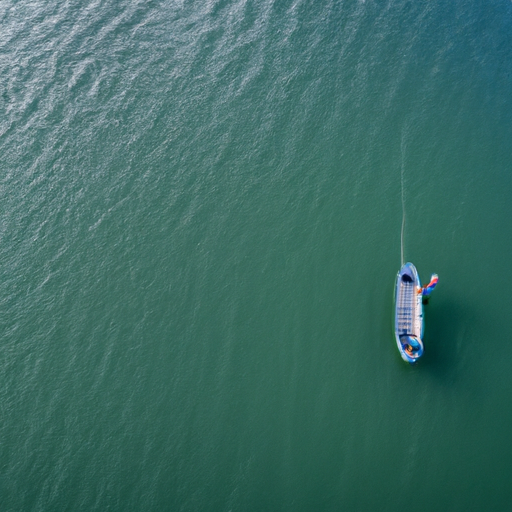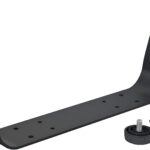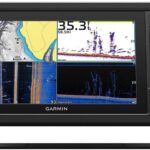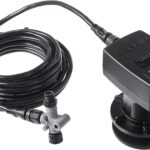Fishing is an ancient practice that may be taking a futuristic twist with the introduction of drone technology. Imagine effortlessly scanning the rippling waves for patterns and movements that indicate a promising catch. The article, “Spotting Fish Patterns With Drone Technology: The Future Of Angling?” discusses this latest trend in depth. It focuses on how drone technology is being applied to the art of fishing, providing new perspectives and opening up a world of possibilities. But is this truly the future of angling? Is it going to change your favorite pastime forever? You’re about to find out.
The Evolution of Angling
Whether it’s a peaceful pastime, a passion, or a professional pursuit, angling has always held a unique allure. From an impressive history that spans centuries to its exciting evolution brought on by the integration of modern technology, this favored fishing method has undergone significant transformations.
Angling in Ancient Times
Believe it or not, angling has a rich history dating back to ancient times. In fact, the Egyptians have even been depicted in historical paintings using hooks to capture fish from the Nile. Flashing forward to Ancient Rome, you’ll find poetry that speaks of the peaceful pleasures of fishing with a rod and line. Diving deeper into the past, you can look towards Japan and China, where traditional forms of fly fishing were part of their early cultures, demonstrating the existence of angling practices across continents and centuries.
Modern Developments in Angling
Leaping into the present day, angling has evolved in many ways. Modern materials like fiberglass and carbon fibre have revolutionized fishing rods, making them lighter, stronger, and incredibly flexible. Enhancements in line materials also provide superior strength while maintaining a lightweight feel. Beyond rods and lines, reels have changed dramatically, with various types serving different purposes – some designed for casting long distances, others for reeling in big fish without snapping the line.
The Potential for Technological Innovation in Angling
As powerful as these modern advancements are, the potential since the dawn of the technological age has been game-changing. There’s an outstanding array of gadgets available for anglers today, from GPS devices and fish-finders to portable technology that offers real-time updates on weather and fishing conditions. However, there’s a fresh innovation on the horizon that’s beginning to make waves – the use of drone technology in fishing.
Introduction to Drone Technology
Understanding the potential role of drones in angling requires a quick primer on this novel device.
The Beginnings of Drone Development
The development of drones, also known as unmanned aerial vehicles (UAVs), initially started for military purposes. However, as you’ll see shortly, their usefulness has extended far beyond this original design.
Diverse Uses of Drones Today
Drones today are versatile tools used across several industries. They assist with aerial photography, surveying difficult-to-reach areas, tracking wildlife, helping in search and rescue operations, and even delivering packages. The possibilities continue to expand, and the angling world is starting to take notice.
The Advanced Features of Modern Drones
Modern drones boast features that make them efficient and easy to handle. Remote control capability, GPS tracking, live video feed, and high-resolution cameras are only a handful of the high-tech functions they offer. It’s these capabilities that make drones suitable for angling, changing the game in several fundamental ways.
The Application of Drone Technology in Angling
From casting a line to locating swarms of fish, drones are beginning to redefine how we understand and approach angling.
Previous Attempts at Technological Innovations in Angling
The fishing world is no stranger to technological advances. Devices like sonar and fish finders represent previous attempts to heighten angling efficiency with technology. However, nothing adds quite the same set of possibilities as drone technology.
How Drones Are Changing Angling
Drones can quickly scan large bodies of water using their cameras, making the once tedious task of locating fish swifter and more straightforward. Additionally, drones can carry lines out to parts of the water that are unreachable through traditional casting methods, opening up new opportunities for both leisure and professional anglers.
Case Studies of Drones Used in Angling
Anglers worldwide are already leveraging this technology with excellent results. In South Africa, for instance, drone-angling has been essential for casting bait into the ocean beyond the breakers to catch sharks. In New Zealand and Australia, drones are being used to fish for tuna and other large ocean-dwelling species. Despite geographical limitations due to regulatory issues, these case studies illustrate the transformative power of drone technology in angling.
Understanding Fish Patterns
Knowing the behavior and patterns of fish is essentially half the battle when it comes to fishing. Therefore, serious anglers must understand these to maximize their catch potential.
Basic Fish Behaviors
Fish behavior has various influencing factors, such as weather, water temperature, time of day, and season. For instance, certain fish are more likely to bite during cooler times of the day, like early morning or late afternoon, while others might feed more actively at night.
The Importance of Recognizing Fish Patterns
Recognizing these patterns is imperative for successful angling. An angler who knows when and where fish are most likely to be found can time and place their casts accordingly, significantly increasing their catch rate.
How Fish Patterns Affect Angling Outcomes
An improved understanding of these intricate patterns allows anglers to become more strategic and efficient in their angling approaches. By identifying feeding hotspots, migration routes, and spawning grounds via their behaviors, your chances of a successful angling experience can multiply manifold.
Drones And Fish Pattern Recognition
The introduction of drones into angling presents a unique opportunity to observe and understand fish patterns like never before.
The Concept of Drone-based Fish Pattern Recognition
Drones, with their aerial viewpoint and versatile cameras, can take angler’s understanding of fish patterns to new heights. From high above, drones offer a broad scope of visibility, allowing them to go beyond observing individual fish to spotting and understanding entire schools’ behaviors.
The Technology Behind Drones’ Fish Pattern Recognition
The magic behind this pattern recognition lies in the advanced technology of the drone’s camera. Between high-definition footage and the ability to stream live video feed directly to your smartphone, you can gain real-time insights into fish movements and patterns. Pair this with the drone’s GPS capability, and you can map fish locations with speed and accuracy.
Real-Life Examples of Drones Spotting Fish Patterns
Several enterprising anglers have already shared their impressive results. By employing drone technology, they’ve significantly improved their understanding and application of fish patterns, leading to exhilarating fishing experiences previously impossible with traditional techniques.
Challenges in Applying Drones to Angling
The advent of drone technology in angling is not without problems, however, and these come in three main types: technical, regulatory, and financial.
Technical Issues with Drones
Potential technical challenges with drones include handling difficulties, reduced functionality in poor weather, and limited battery life. Drone fishing requires a high degree of skill and technical knowledge, posing a challenge for novices or technologically challenged anglers.
Regulatory Hurdles for Drones in Angling
Regulatory issues represent a significant potential roadblock. Many countries have strict requirements and restrictions for the use of drones, some of which prohibit their use completely. Drone usage is often heavily regulated, requiring permits and adherence to strict operating guidelines to ensure safety and protect privacy.
Costs and Availability Concerns for Drone Angling
Lastly, financial considerations can be an impediment. Quality drones with all the necessary features for angling can be expensive, putting them out of reach for many casual anglers. In certain locations, drone availability may be limited, making it challenging for interested individuals to engage in drone angling even if they have the means.
The Advantages of Drone Usage in Angling
Despite these challenges, drone usage in angling brings a fistful of significant benefits, many of which outweigh the issues at hand.
Increased Success Rates
Arguably the biggest advantage of drone fishing is the potential to increase success rates. The ability to locate fish quickly and cast lines with precision to otherwise unreachable areas can significantly enhance catch rates, making every fishing outing more productive and rewarding.
Expanded Geographic Possibilities
With a drone in your fishing kit, you won’t be limited by geography or accessibility, you can explore fish-rich areas far beyond what’s reachable by traditional casting – think remote offshore spots where the big fish play, or hard-to-reach locations surrounded by obstructions.
Efficiency and Time Savings
Last but not least, drones provide exceptional efficiency. From scouting vast water bodies and identifying fish hotspots to precisely casting lines and monitoring real-time movements, drones can make the entire angling process quicker and smoother, saving you time and energy.
How Drones Could Shape the Future of Angling
As drone technology continues to evolve and integrate into angling, the potential implications on the future of fishing could be significant.
Predicted Trends for Drones in Angling
The use of drones in angling is forecast to grow, leading to innovative drone models specifically designed for fishing. We can also expect to see the development of advanced software for more accurate fish pattern recognition and prediction. Meanwhile, “catch and release” practices could also be revolutionized, with drones facilitating the safer release of fish back into their natural habitats.
Potential Impact on the Angling Industry
On an industrial level, drone-enabled angling could reshape professional fishing, fishing competitions, and even the tackle industry. Advances in drone technology might lead to new categories of fishing gear, thereby fueling product innovation and spurring growth in the sector.
How Drones Might Change Angler Behavior
As for anglers themselves, the adoption of drone technology could change their behaviors with heightened expectations for a catch rate and a reduced focus on traditional angling skills. It also might attract a younger, more tech-savvy audience to angling, promoting the sport among a broader demographic.
Sustainability and Ethical Considerations
As with all game-changing technologies, the integration of drones with angling raises important ethical and sustainability issues that must be considered.
The Debate about Technological Aid in Angling
One of the debates regarding drone fishing questions the line between sport and technology. Some purists might argue that using drones takes away from the art of angling, making it too easy and less about the traditional skills of patience, timing, and intuition.
Potential Environmental Impact of Drones on Fish Populations
From an environmental perspective, overfishing is a real concern. Increased efficiency and success rates thanks to drones could potentially put pressure on fish populations and upset ecosystem balance, which necessitates careful management and regulation.
Creating Sustainable and Ethical Policies for Drone Angling
The challenge thus lies in implementing sustainable policies that mediate between the benefits of drone fishing and its potential complications. This could involve setting catch limits, defining drone fishing zones, or creating regulations around specific species.
Conclusion: The Intersection of Technology and Tradition
The intriguing story of angling – a tale that started thousands of years ago on the banks of the Nile and has come to incorporate incredible technological advances such as drone fishing – exemplifies the remarkable intersection of tradition and innovation.
Balancing Technological Innovations with Traditional Angling Practices
The key lies in finding the perfect balance. While technology, like drone fishing, brings fascinating opportunities to the angling world, it’s essential to remember and respect traditional practices and the joys they bring. Fishing is not just about the catch, but also about the peace, patience, and connection with nature it inspires.
The Possible Future of Angling With Drone Technology
As drone technology becomes more advanced and accessible, its impact on the angling world is sure to grow. These devices may soon become as standard in an angler’s arsenal as the fishhook and the line are today. However, it’s crucial to employ them responsibly to protect our natural ecosystems.
Closing Thoughts on the Evolution of Angling
In conclusion, the future of angling looks just as rich and diverse as its past. The integration of drone technology into this time-honored pastime promises an exciting era for the sport, and the wider fishing community, while challenging the anglers, the fisheries, and the regulatory bodies, to ensure a balanced and sustainable future for angling. So, as you consider the prospect of spotting fish patterns with drone technology, remember that the best angling practices will always marry a respect for tradition with an openness to innovation.










